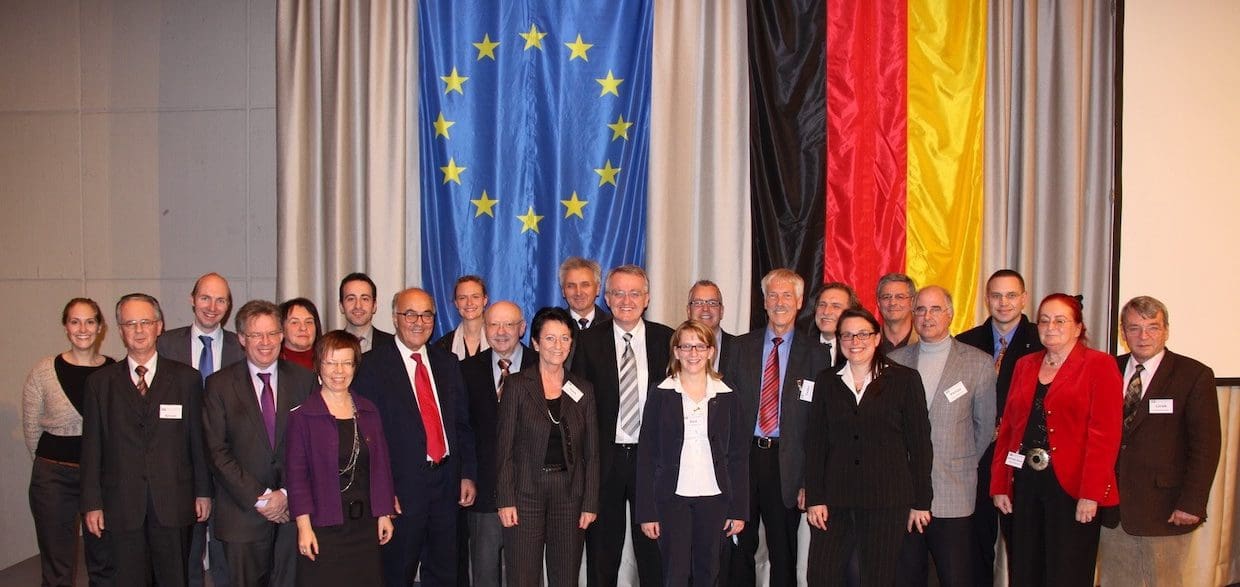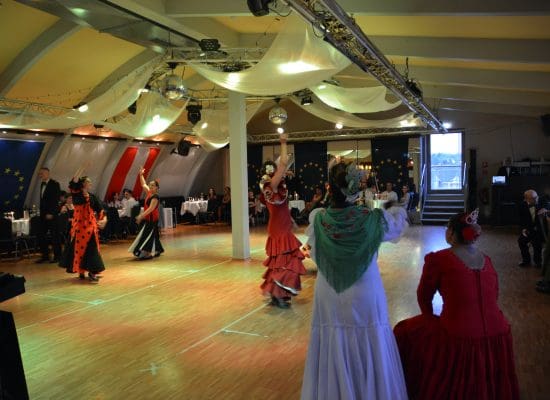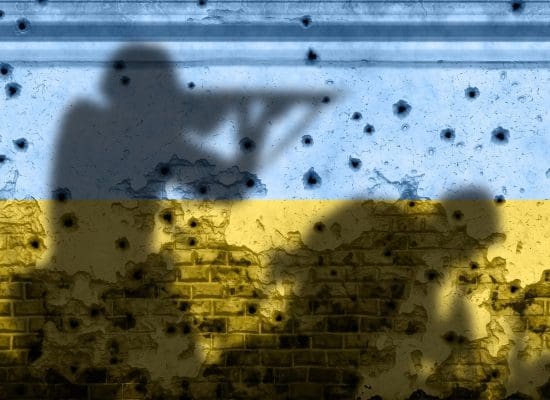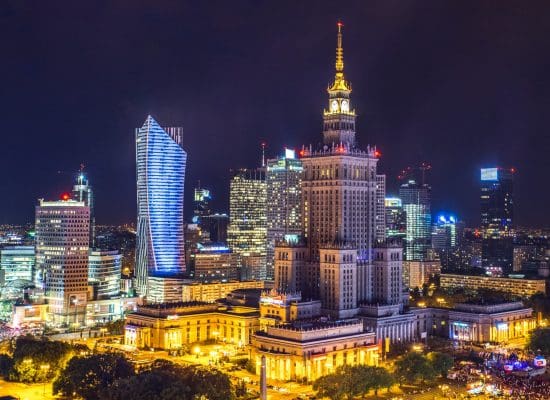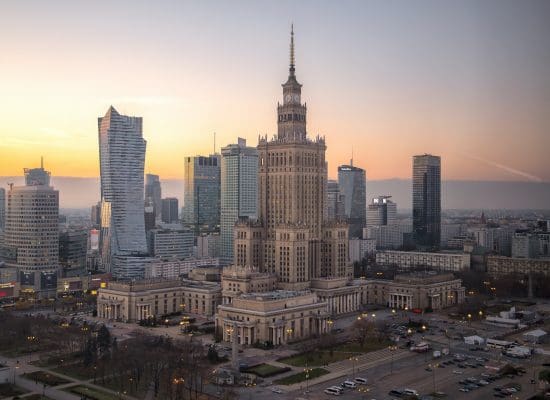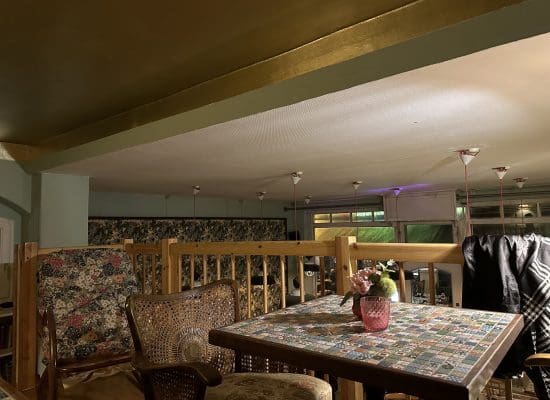Photo: Federal Congress 2009, delegates from Baden-Württemberg | © EUBW
The EUROPA-UNION Germany (EUD) is a political and non-partisan citizens' movement in the Europe-wide network of Union of European Federalists (UEF), which has been working since 1946 on the basis of the Hertenstein program for a democratic and federal European state in peace, freedom and prosperity.
Together with her youth association Young European Federalists she is a member of the network European. movement Germany (EBD), which is part of the previously discussed European Movement International (EMI).
The EUD is federally divided into 16 state associations, which in turn can be subdivided into district, area, district, city or local associations. In addition, there are currently other sub-associations in Brussels, Luxembourg and Dublin, which open up a voluntary field of activity to members of the EUROPA-UNION living there.
The highest body is the Federal Congress, which is made up of delegates from all state associations and delegates from independent associations. Other organs are the Federal Committee, also made up of delegates from the subdivisions, and the Executive Committee, which is elected every two years by the Federal Assembly. The members of the Executive Committee are chaired by the President of EUROPA-UNION Germany, who has support from an honorary Secretary General of EUROPA-UNION Germany and a federal office based in Berlin, which consists of a full-time federal manager with other employees and interns.
By providing information about political, social and cultural developments in Europe, by promoting tolerance and international understanding between the peoples of Europe and by promoting contacts with our European neighbors, the European federalists want to make the existential importance of the European integration process clear and inform citizens of the need for a personal Commitments to a Europe united in diversity are convincing.
The voluntary work of the European federalists mainly takes place on site in the respective local and district associations, which ideally have also been constituted as registered associations and can therefore demonstrate a high level of independence, and this is entirely in line with their own federal and subsidiary values.
That is why there are very different EUROPA-UNIONs in Germany. The bandwidth ranges from very politically active associations that want to create a European federal state or the United States of Europe as quickly as possible, to associations that would prefer to maintain the status quo, to associations that are purely concerned with promoting a committed to a more diffuse Europe and better international understanding.
These around 300 independent associations today manage time and again to formulate their own ideas about our Europe, to put them up for discussion in the respective national assemblies and to ensure that the Federal Congress passes resolutions which are still trend-setting for our common Europe.
For a few years now I have been present as a delegate to both the Federal Congress and the Federal Committee at the respective meetings of these bodies. From my federal point of view, this is the only real and regular opportunity where the more active members of the respective district and local associations from all over Germany and now also from the three existing 'enclaves' (Brussels, Luxembourg and Dublin) meet and can exchange with each other; the motto here is very simple: 'You don't have to keep reinventing the wheel, you can learn a lot from the experiences, mistakes and successes of other associations!' This is all the more important, the less encouragement the voluntary activists receive locally and can therefore 'recharge their batteries with confidence and hope' at these meetings and return to their respective associations strengthened with new ideas and momentum. As a result, there are often constellations of cooperation that would probably never have come about without these meetings.
Another task of these organs is to decide on applications, which ideally – from bottom to top – are made primarily to the Federal Congress via the respective district and state associations and, one should not underestimate this, are regularly accounted for by the Executive Committee to request and, if necessary, to make adjustments.
As is actually usual in federal associations, the executive committee and the respective state executives, which have more coordinating and less administrative tasks, could be kept very lean and focus on representing the association to the outside world and promoting association decisions.
Due to the history of our association and the fact that the civil and, above all, federal representation is distributed very differently in Germany, it must be taken into account that both the presidency and the state executives are forced to compensate for these shortcomings and create and maintain structures in the area so that the European federalists can cover the whole of Germany and offer interested parties at least one local contact point.
For this reason, these boards must remain somewhat 'larger' than usual, at least until viable federal structures with civic engagement have formed throughout Germany.
In addition, the federal association must compensate for the lack of linguistic diversity caused by the national state by 'replacing' the European federalists with a lack of foreign language skills and corresponding cultural experience at the European level and also acting as a 'mediator' between the European association and individual members.
This lack of language competence, which incidentally occurs in all larger nation states, will probably continue to be the reason why the 'national associations' will continue to establish themselves as the 'most important contact point' for the European federalists, to the detriment of the European association and our European movement as a whole in the case of our federal association, the formation of 'enclaves' could even further weaken the European level of our association.
"Our salvation lay and lies in the following: Europe, free Europe, had to and must grow together into a unit, and we had to and must form an integral part of this Europe."
Konrad Adenauer (1983: 121)
If you are now a little more curious, I recommend reading my book Europe is for everyone!
You can also get more details about the book here finding
